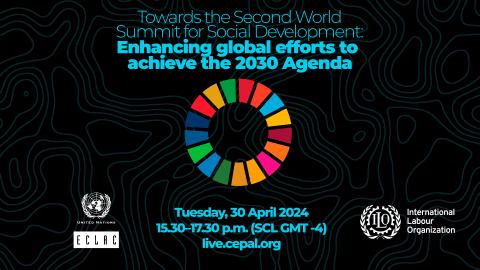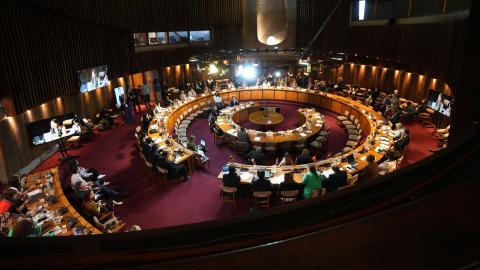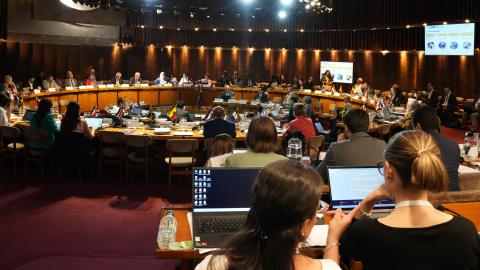Announcement
The world today is undergoing a change of era. The unprecedented rise in global inequality, the increasingly severe effects of climate change and the ambivalent role played by the technological revolution, which multiplies capacities and threatens employment, are signs revealing that the reigning development pattern has grown unsustainable.
These imbalances have mobilized the international community, which has laid out a road map to 2030, an Agenda for Sustainable Development that clearly reflects the broad and urgent nature of these global challenges and that has put fighting inequality at its center.
Achieving the sustainable development goals requires tackling the task of putting into place and consolidating specific instruments for their implementation. To this end, the Economic Commission for Latin America and the Caribbean (ECLAC) proposes an analytical framework that complements the 2030 Agenda, based on a structuralist perspective of development and from the point of view of Latin American and Caribbean countries.
The core concept of ECLAC´s proposal lies in progressive structural change: a process of transformation towards activities and productive processes that 1) are intensive in learning and innovation; 2) are associated with markets and areas of goods and services provision that are expanding quickly, which allows for increased production and employment; and 3) favor environmental protection and the decoupling of economic growth and carbon emissions.
To be able to move towards these new productive structures a new set of institutions and political coalitions are needed that promote them on a global, regional, national and local level.
The world requires a new governance that takes on the task of creating the global public goods needed today and in the future. These include a new international financial system, climate security, implementing the 2015 Paris Agreement, perfecting the rules of trade and intellectual property, and ensuring the broadest possible participation in the data revolution.
Furthermore, regional integration must be strengthened because it constitutes the most natural space for creating productive chains, taking advantage of geographical proximity and complementarity among national economies. It is essential that officials strengthen the regional financial security network, coordinate fiscal policies and measures to attract foreign direct investment, make progress on the creation of a single digital market, and, of course, articulate a resilience fund for Caribbean countries.
It is time to make a strong environmental push in Latin America and the Caribbean, by fostering an integrated package of coordinated public and private investments in distinct areas to redefine patterns related to energy, production and consumption, based on learning and innovation.
Latin America and the Caribbean has today a unique opportunity to change its development pattern and put an end to the economic, social and environmental imbalances that affect its inhabitants.
Our region is facing the challenges of the 2030 Agenda with a lower growth rate than other regions in the developing world, persistent external vulnerability, and reduced fiscal space in nearly all of the countries.
In this scenario, we must embark upon paths to increase investment, above all in infrastructure, energy and technological innovations aimed at halting environmental deterioration. At the same time it is necessary to adopt social policies that allow for universal access to health and education, and that strive to achieve full employment.
These policies have a great impact on productivity. But productivity and the universalization of rights must go hand in hand: neither is sustainable without the other.
We must create employment and local capacities related to the technological revolution and participation in the generation of knowledge, goods and services that focus on social inclusion and environmental care.
Despite the adversity of the economic context that the region is facing, the present moment offers promising paths. The time has come to specify the instruments and actions that we will take, to implement them and put them in motion.
That is the purpose of the proposals that the Economic Commission for Latin America and the Caribbean (ECLAC) will present during its most important biannual meeting: the thirty-sixth session, which will be held from May 23-27 in Mexico City with the participation of senior authorities from our region.
An ambitious and urgent agenda with growth, sustainability and equality at the center has emerged. In light of this we Latin Americans and Caribbeans must be the protagonists of our development—based on our own reality, recognizing the difficulties and potential, and imagining tomorrow from the South.


